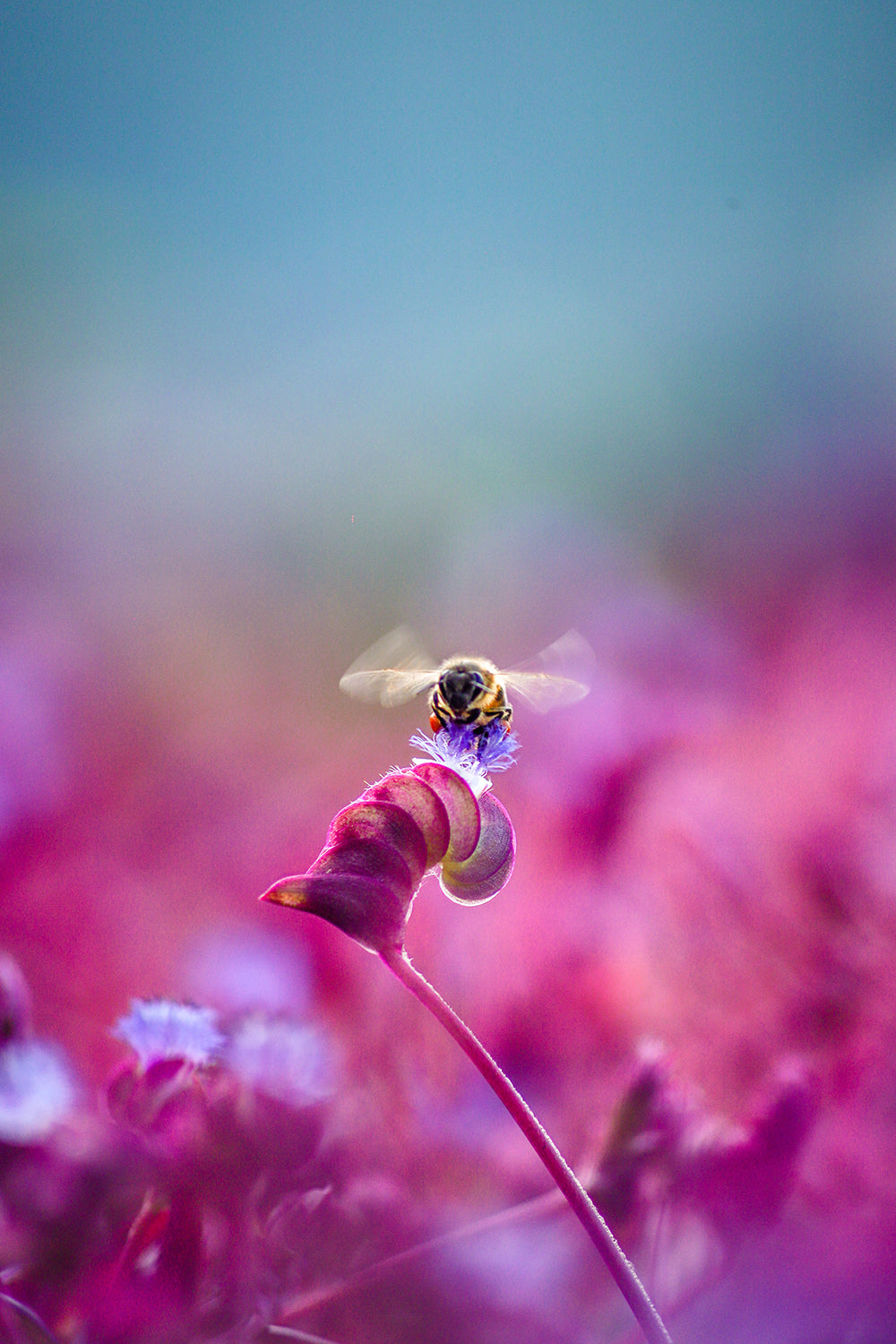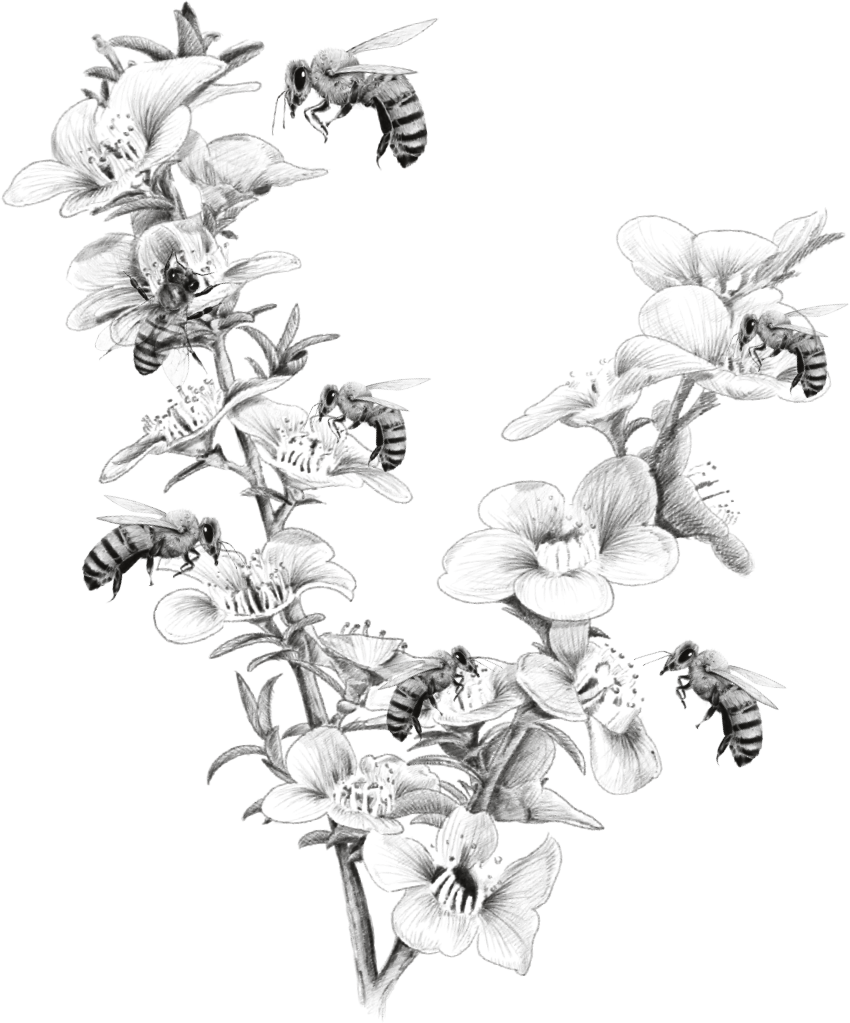
Our Story
Honey Done Different
Our story begins in Aotearoa, New Zealand where our driving passion to develop innovative health solutions using the most valuable natural resources led us to the wild Mānuka flower.
Our story also starts with the bee and its unique ability to see the Mānuka flower in bold utra-violet (UV) colour.
Whereas humans may see a simple white Mānuka flower, Bees perceive these flowers in splashes of vibrant UV, an evolutionary trait developed by Mānuka to attract bees for pollination. This allows bees to differentiate Mānuka from other plants and evaluate which flowers contain the most nectar and pollen. We like the way these bees see the world and use ‘how bees see’ as inspiration for our brand palette.
Seeing in UV equips bees with a detailed, colour-encoded map of where to locate Mānuka flowers and where to precisely target the nourishing nectar in order to collect the most pollen. It is this nectar and pollen that contain the identifying DNA and the four prized attributes of the Unique Manuka Factor (UMF) of Honuka’s Mānuka honey.

Mānuka Honey
Our honey doesn’t come from farms of plantation grown plants or as a by-product of hives trucked in to pollinate cash crops.
Our honey is created by our bees naturally from the nectar of remote wild growing Aotearoa, New Zealand Mānuka flowers far from city pollutants and mass agriculture.
Each treasured batch is sustainably harvested by our own Master of Honey, in the pristine forests of Aotearoa, New Zealand. Honuka is a proud member and license holder with New Zealand’s Unique Manuka Factor Honey Association (UMFHA ), whose mission includes promoting and protecting the integrity and authenticity of Mānuka honey.
The UMF™ rating system independently certifies natural components found in Mānuka honey to assure potency, purity, authenticity, and freshness and the pollen our bees collect is independently tested for the specific DNA of the Mānuka flower.
Use the BEECODE on our jars to trace the origins and authenticity of each batch of our Manuka honey or See Here.
Sustainability
OUR COMMITMENT TO THE FUTURE OF THE PLANET
Sustainability and conservation play a significant role in how we do business. Sustainability represents hope for the future and for the generations that follow, which is why it is so important to us at Honuka. Making sure our brand is sustainable means being conscious and intentional with the everyday decisions we make, and to strive towards doing whatever we can to ensure our business has the least impact on the planet, which is why it is essential that our packaging comes from sustainable sources. We are committed to continuously grow and explore new ways of doing things to help minimise the impact we have on the planet. It’s our goal to be a part of the solution to climate change, and you can be too!
Planet friendly
Our bio honey jars
Our jars are made from sugarcane making them a sustainable alternative to petroleum-based plastics. They are 100% recyclable and all materials generated during their manufacture is either reused or recycled. The manufacturers are Toitū Diamond Enviro-mark accredited; an internationally recognised initiative that helps companies reduce their impact on the environment during the manufacturing process.
Our product labels and cardboard packaging are both FSC and PEFC certified and come from sustainably managed forests, giving you the assurance that we are doing what we can to help preserve endangered forests and their biodiversity.


